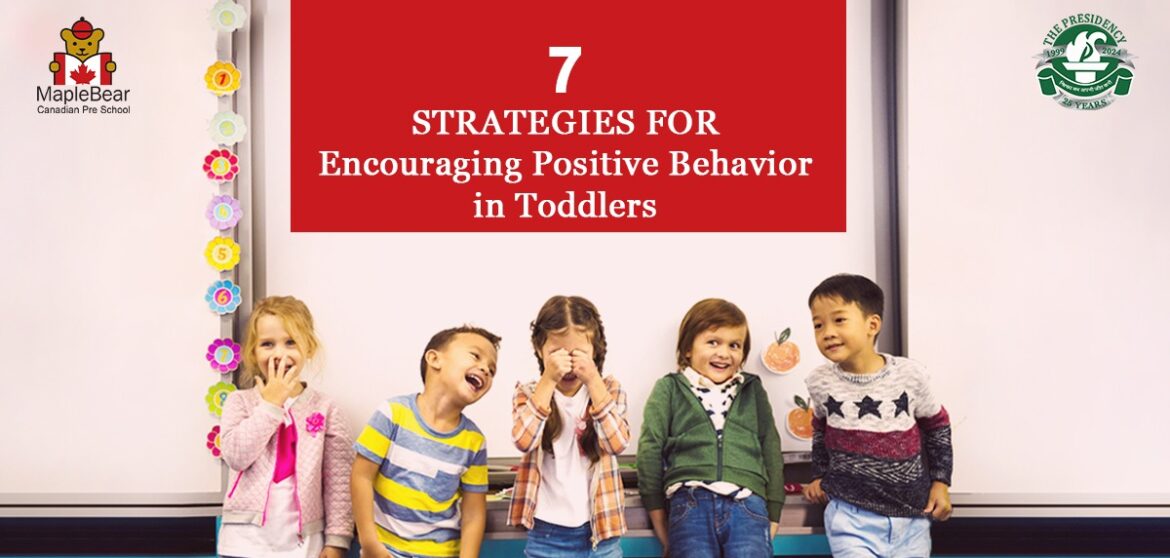7 Strategies for Encouraging Positive Behavior in Toddlers
Encouraging positive behavior in toddlers can sometimes feel like a daunting task but with the right strategies, it becomes much more manageable.
As toddlers explore their world and test boundaries, parents and caregivers have a crucial role in guiding them towards good behavior.
Owing to this, here are seven effective strategies to foster positive behavior in your toddler.
1. Establish Clear and Consistent Rules
Toddlers thrive on routine and knowing what to expect. Establishing clear and consistent rules helps them understand what is expected of them.
However, make sure the rules are simple and age-appropriate.
Also, consistency is key, so apply the rules consistently across different situations to help your child learn and internalize them.
Pro Tip:
• Use simple language to explain the rules.
• Reinforce the rules regularly and calmly remind your child when they forget.
2. Use Positive Reinforcement
Positive reinforcement is a powerful tool for encouraging good behavior. Praise and rewards motivate toddlers to repeat the desired behavior, whereas acknowledging their efforts and successes boosts their self-esteem and reinforces positive actions.
Pro Tip:
• Offer specific praise that clearly identifies the good behavior (e.g., “Great job sharing your toys!”).
• Use small rewards like stickers, extra playtime or a favorite activity as incentives.
3. Model the Behavior You Want to See
Children learn by observing the adults around them. Hence, modeling positive behavior yourself is one of the most effective ways to teach your toddler.
Also, make sure to demonstrate kindness, patience and respect in your interactions, then watch how your toddler will take up these behaviors.
Pro Tip:
• Be mindful of your actions and language, especially when your toddler is watching.
• Show empathy and understanding in challenging situations to teach them how to handle their own frustrations.
4. Create a Positive Environment
A positive and nurturing environment encourages good behavior. So make your home a place where your toddler feels safe, loved and supported. This foundation of security and trust allows them to explore and learn appropriate behaviors.
Pro Tip:
• Provide plenty of opportunities for play and exploration in a safe environment.
• Ensure your toddler has a structured daily routine with time for meals, naps and play.
5. Teach Through Play
Play is a natural way for toddlers to learn about the world and develop social skills. So use playtime to teach your child about sharing, cooperation and following rules.
Also, interactive games and role-playing can be particularly effective in reinforcing positive behavior.
Pro Tip:
• Engage in pretend play to model social interactions and problem-solving.
• Encourage cooperative games that require taking turns and working together.
6. Set Realistic Expectations
It’s important to set realistic expectations for your toddler’s behavior based on their age and developmental stage. Understanding what behaviors are typical for their age can help you respond appropriately and avoid frustration.
Pro Tip:
• Be patient and remember that learning new behaviors takes time.
• Adjust your expectations as your child grows and develops new skills.
7. Use Gentle Discipline
When addressing negative behavior, use gentle discipline techniques that focus on teaching rather than punishing.
You may also redirect your child’s attention to appropriate activities, explain why certain behaviors are unacceptable and use time-outs sparingly and appropriately.
Pro Tip:
• Stay calm and avoid shouting or physical punishment.
• Use natural consequences to help your toddler understand the impact of their actions (e.g., if they throw a toy, they can’t play with it for a while).
Final Thoughts
Encouraging and praising positive behavior in children is an ongoing process that requires communication, understanding and patience. We hope that by using these strategies consistently, you can help your toddler develop the social and emotional skills they need to thrive.
Remember, the trick lies in realizing that you are not only dealing with a youngster but also shaping a future adult. After all, the effort you make now can have a long-term influence on their values, personality and entire attitude towards life.
For this reason, The Maple Bear Preschool at The Presidency International School provides a secure and supportive environment for pupils so that they feel at ease while approaching their instructors and counselors about their emotional needs.


